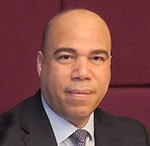The integration of engineering, science, and technology and collaboration between industry and research centers are behind the fast growth in the development of subsea systems, which play a significant role in pushing offshore energy to boundaries not foreseen for this decade and shape a bright future for the oil and gas industry. Continual improvement in advanced and innovative technology of subsea systems and applications has overcome several upstream challenges in terms of design, environment, economics, operational risks, and constraints efficiently and effectively.
Because we are in the energy-transition decade, accumulated knowledge transfer, outstanding skills, and exceptional experience in executing complex oil and gas subsea engineering, procurement, construction, and installation are highly recommended as the main references for the transformation toward low-carbon offshore energy projects. The selected papers confirm that subsea systems will continue to play a significant role in providing reliable, affordable, stable, secure, and sustainable energy across the globe and will continue to grow for many decades.
Paper OTC 32705, “Mero Field: Subsea Development Challenges,” details the subsea system development with highlights on early production systems, various new solutions, and technological achievements in the subsea scope. The Mero Field project was selected as a finalist for the 2022 International Petroleum Technology Conference Excellence in Project Integration Award.
Paper OTC 34987, “Selection of Subsea System Architectures for Offshore Carbon Capture and Storage (CCS),” defines the associated subsea controls architecture for four different configuration scenarios, identifying the optimal CCS scheme considering total depth of the equipment, technology gaps, technical risks, and costs.
In paper SPE 215580, the authors present root-cause analysis of subsea pipeline hydrate blockage, experience from hydrate plug and melting, and the importance of implementing the right flow-assurance strategy and contingency plan. The paper was presented at the 2023 Offshore Europe conference in Aberdeen.
The three alternate papers also were very high‑quality, written at a level equivalent to the primary selections. They discuss critical subjects and are strongly recommended. They can be found in the OnePetro online library. Two alternate papers highlight the application of advanced subsea technology, while a third focuses on preventing gas hydrate formation in subsea production systems.
This Month’s Technical Papers
Subsea Production System Allows Safe and Successful Gas Hydrate Plug Remediation
Subsea Development Challenges Overcome in the Mero Field
Study Analyzes Selection of Subsea System Architectures for Offshore CCS
Recommended Additional Reading
OTC 35027 Advanced Shutdown/Startup Analysis for Gas Hydrate Prevention in Subsea Production Systems by L.F.R. Dalla, Petrobras, et al.
OTC 34928 Subsea Compression: Sustainably Unlocking Subsea Gas Resources to Any Scale by Alexandre Lupeau, OneSubsea, et al.
OTC 35327 Subsea Reinjection of Methane-Rich Gas: System Design and Injection Pump Testing by A.C. Hill, ExxonMobil, et al.

Ibrahim Fahmy Abdelaty, SPE, is a visiting professor at the Naval Architecture, Ocean, and Marine Engineering Department of the University of Strathclyde. He holds a BS degree in marine engineering and naval architecture from Alexandria University. Abdelaty has 24 years of experience, including several senior roles at technical, business, advisory, and management levels. He has served on the International Petroleum Technology Conference Award Committee since 2014 and was an executive committee member for Offshore Europe 2023. Abdelaty has been chairman or speaker at 100 technical and panel sessions organized by SPE and other organizations in the past 10 years and serves on the JPT Editorial Review Board.

